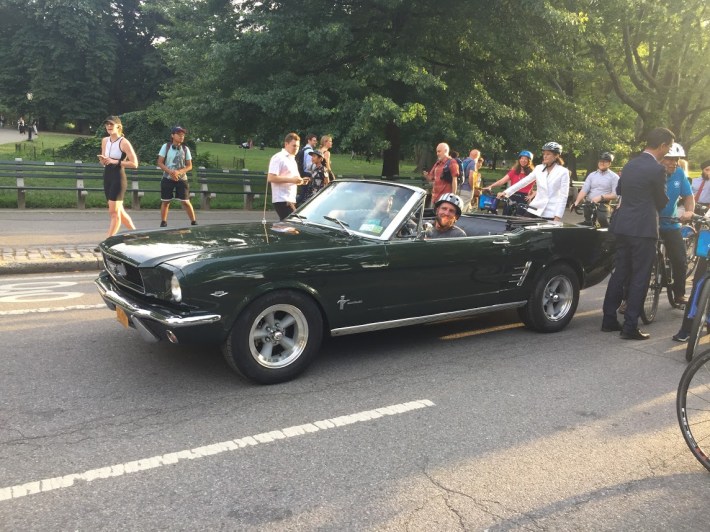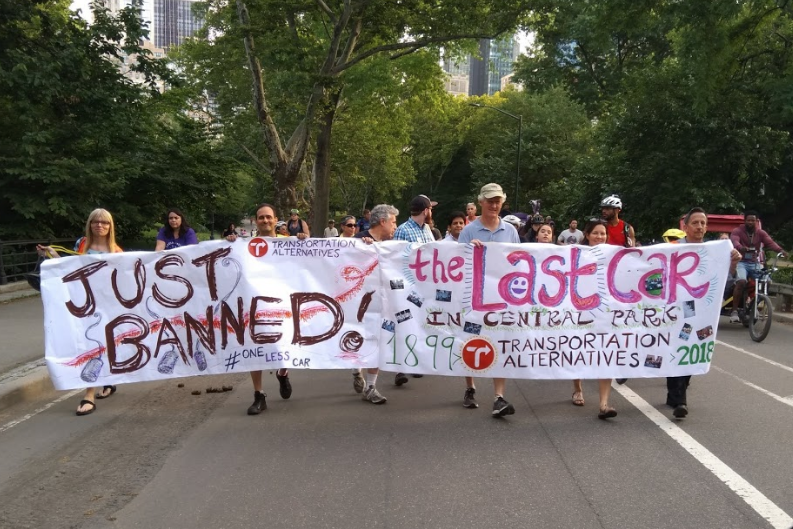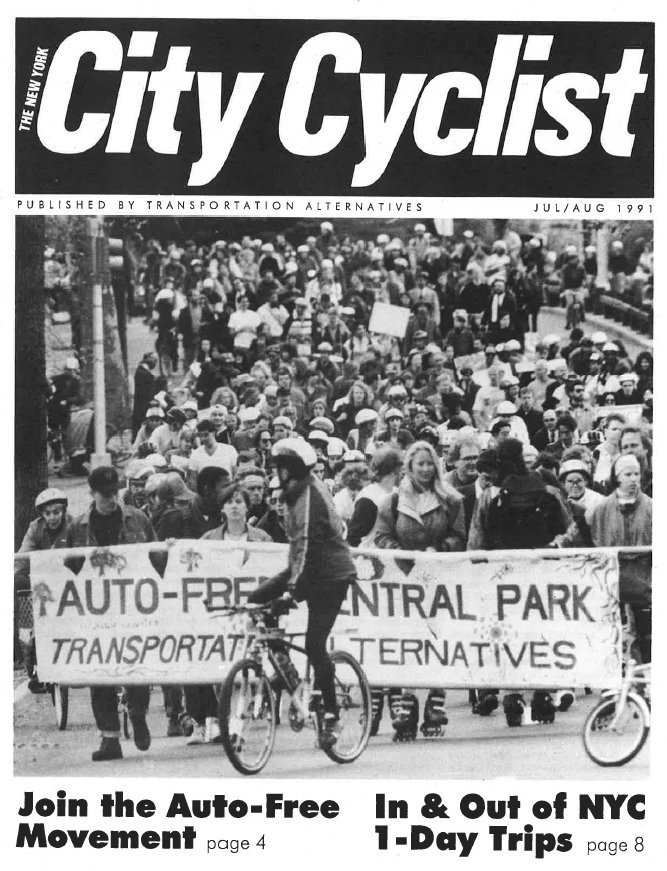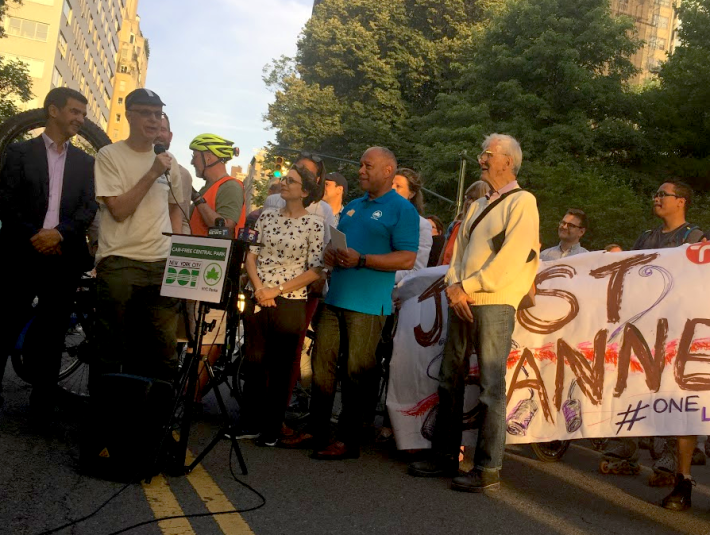As the clock struck 7 p.m. last night, the final private car to roll through Central Park entered the park's Center Drive from Sixth Avenue, culminating more than a half-century of car-free park advocacy.
Transportation Alternatives Executive Director Paul Steely White drove a forest green Ford Mustang at walking speed, followed by a parade of city officials and residents who'd come out to celebrate.

For two generations before this final celebration, New Yorkers won many incremental victories in the campaign to get cars out of Central Park. TransAlt co-founder Barry Benepe led the first demonstrations for a car-free Central Park way back in 1966. At the time, cars were allowed on the park loop 24/7. Those early actions got the Lindsay administration to rollback cars in the park on summer Sundays.
Benepe was on hand yesterday to savor the conclusion to 52 years of advocacy.
Car-free Central Park was a signature issue and organizing goal for the nascent Transportation Alternatives, which was founded in 1973. After progress stagnated during the eighties, a revived TransAlt mounted huge campaigns to get cars out of Central Park and Prospect Park starting in the early nineties.
Essential to this advocacy was Ken Coughlin, who started volunteering with TransAlt in 1992. In 2005, Coughlin and other volunteers collected more than 100,000 signatures in support of making Central Park car-free. And in 2011, he led an effort to get nearly every community board in Manhattan to endorse a car-free park.
In response to this pressure, a succession of mayors made a series of incremental changes to reduce the presence of cars in the park -- expanding car-free hours, closing off park entrances to cars, lowering the speed limit on the park loop, reducing the number of lanes for car traffic. Most recently, in 2015, the de Blasio administration permanently prohibited cars above 72nd Street.
The predictions of carmageddon on nearby streets never materialized. And over time, the number of cars in the park dwindled, from a peak of 2,500 per hour in 1991 to just 350 northbound and 500 southbound in 2018, according to DOT.
Until last night, drivers were still allowed on weekdays on the West Drive and Terrace Drive southbound from 8 a.m. to 10 a.m. and on the Center Drive northbound from 7 a.m. to 7 p.m. On Earth Day this year, Mayor de Blasio announced the park would go car-free forever.
At yesterday's celebration, Coughlin put the long campaign for a car-free Central Park in perspective.
"In 1906, there was a letter-writer to the New York Times, who was complaining about the cars that had just been in the park for the last seven years, and said they're ugly, noisy, and evil-smelling, and where can we look for a remedy? And now we have our answer 112 years later: Mayor de Blasio," he said. "This feels very unreal to me that this is finally happening."








